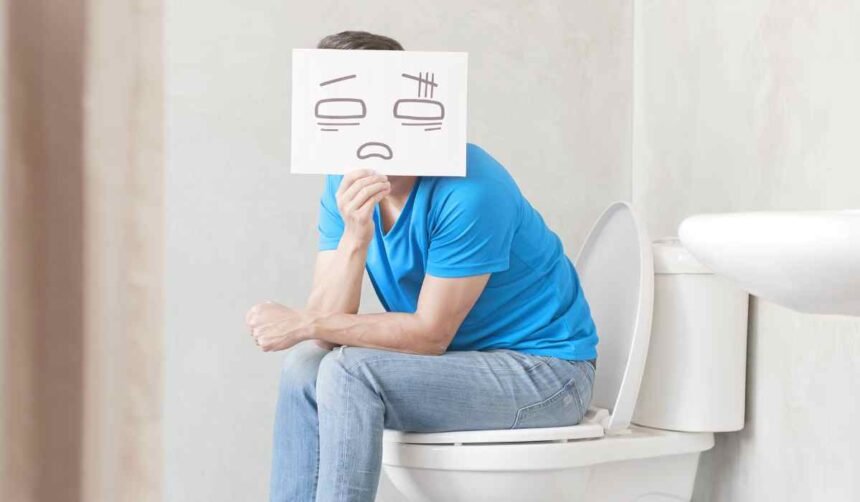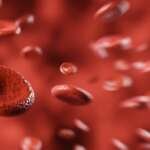If you’ve ever felt the sudden urge to have a bowel movement, hurried to the toilet, strained and pushed only to look down and see nothing but a slimy blob of mucus in the bowl, you’re not alone.
Known as mucus-only stool, passing mucus during bowel movements without any solid matter can be alarming but is often not a cause for serious concern. Understanding the potential causes and when to see a doctor can help demystify this phenomenon.
What is Mucus?
Mucus is a thick, jelly-like substance produced by mucous glands and goblet cells that line the intestines and other organs. Mucus acts as a protective coating and lubricant inside the body. A small amount of mucus in stool is normal, but excess mucus or mucus-only stool can sometimes indicate an underlying issue.
Possible Causes
There are several possible explanations for mucus-only stool:
- Irritable Bowel Syndrome (IBS) – IBS is a common disorder affecting the large intestine and can cause abdominal pain, cramping, bloating, constipation and/or diarrhea. Excess mucus is a hallmark of IBS. The cause is unknown but may relate to changes in gut bacteria, inflammation or sensitivity of the nerves in the colon.
- Inflammatory Bowel Disease (IBD) – This refers to chronic conditions like Crohn’s disease and ulcerative colitis that cause inflammation and damage along the digestive tract. As the intestinal lining becomes irritated, it releases more mucus.
- Infection – Bacterial, viral or parasitic infections in the gut can stimulate more mucus production as the body tries to flush out the pathogen. Common culprits include salmonella, norovirus and giardia.
- Cancer – Though rare, colorectal cancers, especially later stage tumors, may cause increased mucus in stool as the mucus glands get hyperactive. Blood is also possible.
- Stress and Anxiety – For some people, prolonged stress or anxiety can trigger more mucus in stools. The link between the brain and gut is profound.
- Food Intolerances – Sensitivity to certain foods like dairy, gluten or others can prompt an intestinal response in some people, including excess mucus. Keeping a food diary may reveal trigger foods.
- Medications – Certain medications like antibiotics, antacids and some heart medications can impact mucus production, often by altering gut bacteria.
- Dehydration – Not drinking enough fluids can cause the intestines to secrete more mucus and the stool to become harder, giving the illusion of mucus-only stool.
When to See a Doctor
In most cases, an isolated incident of mucus-only stool is not worrisome, especially if you recently had a stomach bug. However, if it happens frequently, persists for more than a few days or occurs alongside other symptoms, consult your doctor to rule out potential underlying causes.
Red flags to watch for include:
- Blood or pus in the mucus
- Dark or black sticky stool
- Unexplained weight loss
- Fever, chills or other signs of infection
- Severe pain or persistent cramps
- Ongoing diarrhea lasting over 2 weeks
- Family history of IBD or colorectal cancer
To diagnose the cause, your physician may order stool tests to look for blood, parasites or other pathogens. Blood work to check for anemia and inflammation may be done. Imaging like a CT scan, MRI or colonoscopy may be warranted if IBD or cancer is suspected.
Treatment Options
Treatment varies based on the underlying cause but may involve:
- Dietary changes – Avoiding dairy, gluten, alcohol or other triggers may help reduce symptoms. Probiotics may be beneficial.
- Antidiarrheal or antispasmodic medication – For IBS, these can help ease abdominal cramping and normalize bowel movements.
- Laxatives – Stool softeners or laxatives may be recommended for persistent constipation to ease passage of mucus.
- Antibiotics – If a bacterial infection is the culprit, a course of antibiotics often resolves symptoms. GI infections may require special antibiotics.
- Steroids or immunosuppressants – For inflammatory bowel diseases, these medications help reduce inflammation.
- Surgery – Those with precancerous growths or cancer may require surgical removal of affected colon areas.
Lifestyle measures like drinking plenty of fluids, exercising regularly, managing stress, and quitting smoking may also improve symptoms in many cases. Seek urgent care for severe diarrhea, vomiting or pain.
When to Worry
While alarming, mucus-only stools are seldom serious provided they occur infrequently. Chronic or recurring instances along with concerning symptoms should be evaluated promptly.
Tracking symptoms and triggers can help identify patterns and guide treatment. Most causes are manageable with medication, dietary changes, stress management or other therapies. Get the facts from your doctor to leave worry behind.
- Irritable Bowel Syndrome (IBS). Mayo Clinic. https://www.mayoclinic.org/diseases-conditions/irritable-bowel-syndrome/symptoms-causes/syc-20360016
- Inflammatory Bowel Disease (IBD). CDC. https://www.cdc.gov/ibd/index.htm
- Colorectal Cancer. American Cancer Society. https://www.cancer.org/cancer/colon-rectal-cancer.html
- Food intolerance. NHS. https://www.nhs.uk/conditions/food-intolerance/
- Dehydration. Mayo Clinic. https://www.mayoclinic.org/diseases-conditions/dehydration/symptoms-causes/syc-20354086








